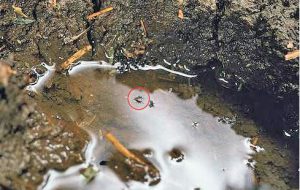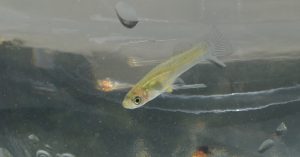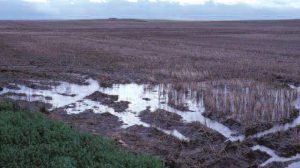With all this rain comes the buzzing of mosquitoes around you and your animals. Here are a few things to know about minimizing mosquitoes on your farm:
Farmers and ranchers can tolerate mosquitoes with a hand slap or the use of mosquito repellent, but our livestock does not share our tolerance to the discomforts or potential health issues that mosquitoes can bring.
- Several diseases can be carried and transferred by mosquitoes to humans, including West Nile encephalitis, Dengue, Zika. West Nile Virus can have severe symptoms that can potential last for weeks, causing substantial reductions in productivity for any farmer.
- Other diseases, like the Eastern Equine Encephalomyelitis, Dog Heartworm, and West Nile can affect horses and herding dogs. Even without the diseases, animals constantly bitten by mosquitoes will be stressed, may not eat regularly, lose weight, or be less productive.
- Large mosquito populations can also add stress and reduce farmhand labor productivity. Agritourism businesses may also see a reduction in guest attendance due to infestations of mosquitoes.
To reduce mosquito issues, management of standing water is essential. Since mosquitoes breed in standing or low moving water, one of the best methods of prevention is to minimize or eliminate any unnecessary pools of water to prevent breeding. The following areas need to be carefully managed to reduce or prevent mosquito populations.
Ponds and Streams

Natural water ponds serve various functions on the farm by supporting stocking fish, other wildlife habitat, or being used as a drinking supply for livestock. These ponds can become breeding grounds for mosquitoes as weed vegetation around the pond can create significant mosquito problems. Keeping vegetation and weeds maintained around the pond can help, by allowing fish and birds to hunt mosquito larvae easier. If livestock are allowed into or around ponds, hoof prints created around the pond can hold enough water for mosquitoes to breed. If possible, it is recommended to fence off ponds completely and provide an alternative fresh water supply. If this is not possible, the pond can be fenced to create one entry lane to reduce the livestock impact along the entire edge of the pond.
Livestock Watering Troughs

Photo Credit: UF/IFAS
Watering troughs and bins can become a massive breeding ground for mosquitoes very quickly. To prevent mosquitoes from multiplying, a bacterial larvicide such as Mosquito Dunks, can be used in the watering trough. These products are derived from Bacillus thuringiensis subspecies israelensis, a bacterium that is harmful to the mosquito larvae, but not to fish or animals. Alternatively, the trough can be stocked with mosquitofish as these fish can consume more than their own body weight in mosquito larvae per day. Adding chemical insecticides to the water source is not recommended and may possibly harm the livestock.
Pastures Areas

If the pastures are soft from excessive rainfall, keep the animals off the pasture until it dries out, or rotate the animals to different pastures to minimize the foot traffic in one area. Do not over-fertilize pastures as excessive nutrients will runoff to water bodies, giving mosquito populations an added source of nutrients.Minimize the amount of time that livestock are turned out in pastures during evening hours when mosquitoes are most active.
For further information read the following documents on mosquito control:
Managing Mosquitoes on the Farm
 0
0
